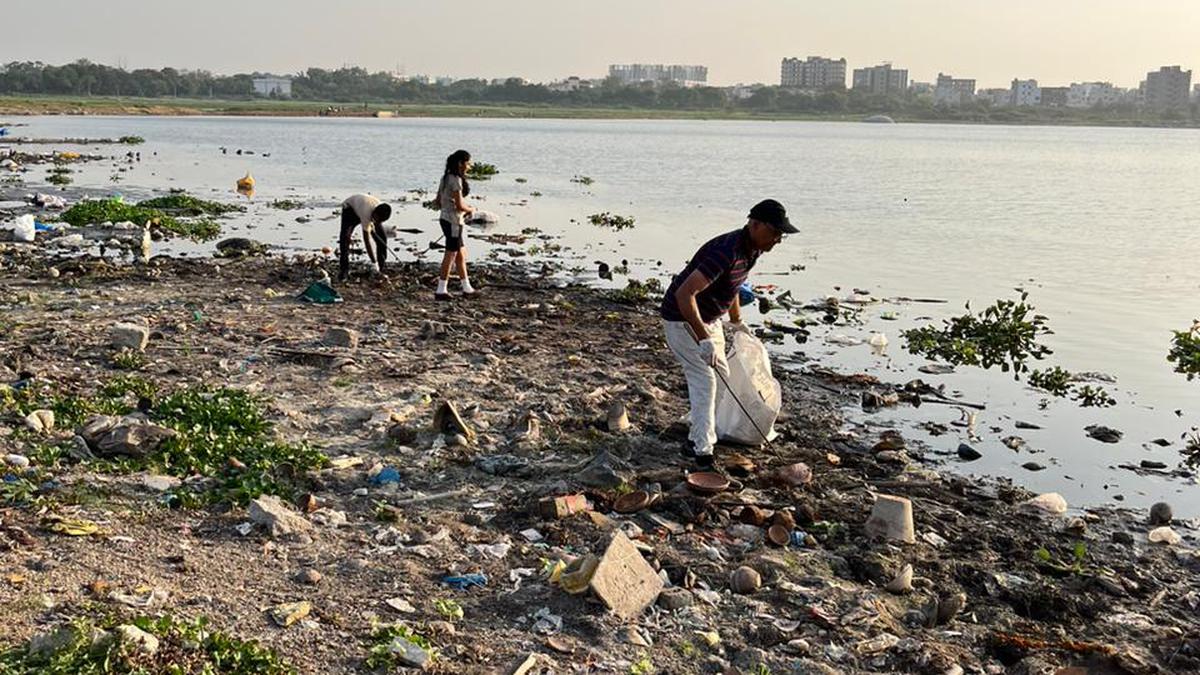
‘May nullify years of efforts’: Lake volunteers in Hyderabad as Ganesh idol immersion nears
The Hindu
Residents of Sainikpuri and nearby localities fear that Ganesh idol immersion may pollute Lake Kapra. Telangana HC had directed that PoP idols be immersed in purpose-built ponds and clay idols in the lake, but volunteers say this was not being obeyed, as witnessed in previous years.
As Ganesh idol immersion festivities draws near, anxiety grips the residents of Sainikpuri and nearby localities about the state of Lake Kapra post-immersion.
The residents, coming together as the voluntary organisation ‘Kapra Lake Revival Group’, had conducted several drives for garbage and weed removal from the water body.
“For a decade, we have been striving to keep the lake alive and litter free. In spite of rains, the lake has been reduced to a third in terms of water storage and allowing Ganesh immersion could worsen the situation,” says Manognya Reddy, a volunteer from the group.
Except during the pandemic years, monthly and, sometimes, weekly clean-up drives were being organised with support from GHMC, she said, adding that even wheelchair-bound senior citizens participated in the drive, which showed their commitment to the lake and environment protection.
Apart from plastic and other garbage, the volunteers also cleared the lake of water hyacinth, which was then composted. Over 500 residents also formed a human chain in August this year to attract the attention of the government to the issue.
Two cranes are now stationed in the vicinity of the lake, one near the pond constructed for the immersion and another closer to the lake. As per the Telangana High Court’s directions, idols made of plaster of Paris (PoP) should not be immersed in the lake whereas clay idols could be.
Accordingly, the government gave directives for the immersion of PoP idols only in the ponds constructed for the purpose. For the immersion of clay idols, cranes have been stationed near the lakes. The main immersion point at Hussain Sagar lake is no exception.













